Search
Did you mean: Gula?
Summary 
Loading AI-generated summary based on World History Encyclopedia articles ...
Search Results

Definition
Gupta Architecture
The Gupta Dynasty (4th-6th century) in North Central India saw the first purpose-built Hindu (and also Buddhist) temples which evolved from the earlier tradition of rock-cut shrines. Adorned with towers and elaborate carvings, these temples...

Definition
Gupta Empire
The Gupta Empire stretched across northern, central and parts of southern India between c. 320 and 550 CE. The period is noted for its achievements in the arts, architecture, sciences, religion, and philosophy. Chandragupta I (320 – 335 CE...
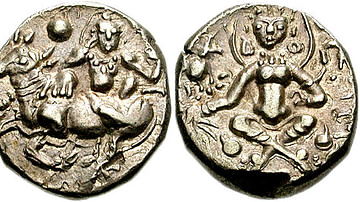
Definition
Gauda Kingdom
The Gauda Kingdom came into being in the late 6th century CE in eastern India, as a result of the political disintegration of the Gupta Empire (3rd-6th century CE). Its core areas were situated in what is now the state of Bengal in India...
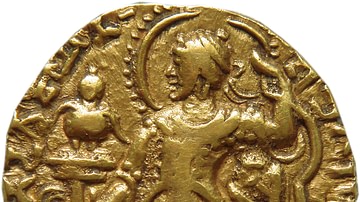
Definition
Samudragupta
Samudragupta (r. 335/350 - 370/380 CE) was the first significant ruler of the Gupta Dynasty. Having come to the throne, he decided to extend the boundaries of his empire to cover the multiple kingdoms and republics that existed outside its...

Image
Gupta Dynasty India, 320 - c. 550 CE - From Magadha to Empire: Culture and Conquest in Classical India
This map illustrates the rise and territorial expansion of the Gupta Empire in India between 320 and circa 550 CE, showcasing a period often regarded as a golden age of Indian civilization. Originating from the Magadha region (modern Bihar...
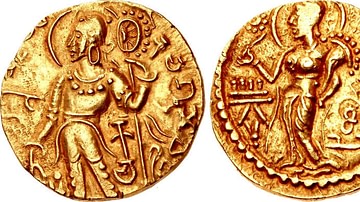
Image
Gupta Empire Coin: Kacha Type
This coin issued by an emperor of the Gupta dynasty (either Samudragupta or Kacha/Kachagupta) shows the King dressed in a Scythian-style coat, trousers and cap and Indian-style necklace and earrings with a halo around his head. He is...
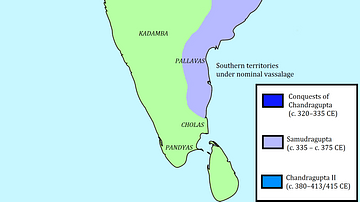
Image
Gupta Empire and Conquests
This map shows the conquests made by Gupta rulers in the 4th century CE and early 5th century CE. Of these three rulers—Chandragupta I, Samudragupta and Chandragupta II—Samudragupta’s conquests are the most important and the most extensive...
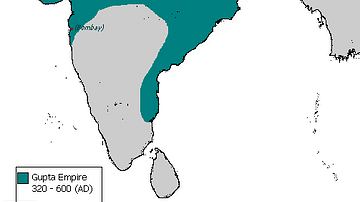
Image
Gupta Empire
A map showing the maximum extent of the Gupta Empire in northern India, c. 320-550 CE.
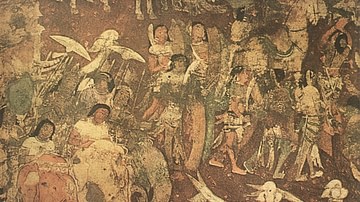
Image
Gupta/Vakataka Period War Elephants
A section of the mural at Ajanta in Cave No. 17. depicts the 'coming of Sinhala'. The prince (Prince Vijaya) is seen in both of groups of elephants and riders. This mural also depicts the soldiers of the Gupta/Vakataka period (4th to 6th...
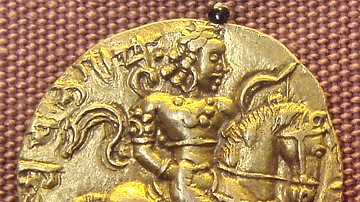
Definition
Chandragupta II
Chandragupta II (c. 375 CE - 413/14 CE) was the next great Gupta emperor after his father Samudragupta (335/350 - 370/380 CE). He proved to be an able ruler and conqueror with many achievements to his credit. He came to be known by his title...